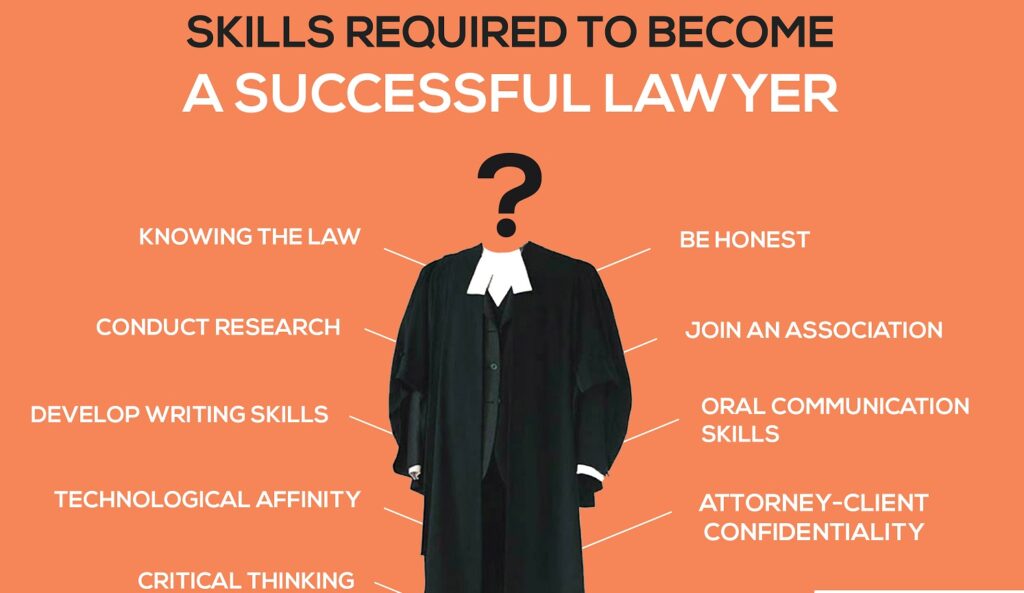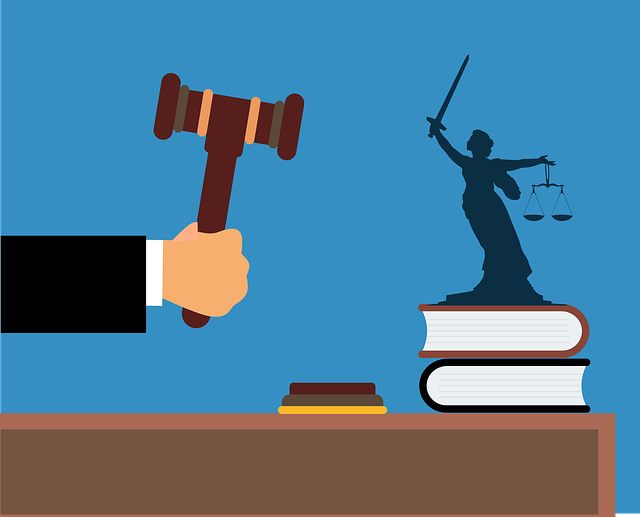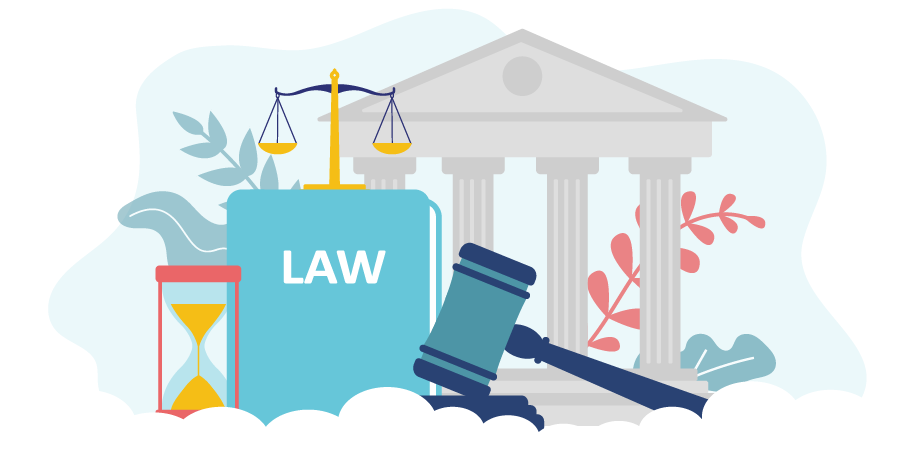
Lawyers and attorneys can work across a variety of different law fields, and their professional roles can vary in responsibilities. However, these professionals have several key skills that are required to be successful in the job. If you’re pursuing your career as a lawyer, no matter what field you choose to practice in, it’s important you have the skills necessary to perform in the role.
In this article, we discuss what skills lawyers need in their jobs, how you can improve your lawyer skills and how you can highlight them on your resume, in your cover letter and during an interview.
What are lawyer skills?
Lawyer skills encompass a variety of hard and soft skills that are both specific to the profession and transferable skills. Communication, knowledge of law practices, protocols and regulations, interpersonal skills and the ability to think critically and solve problems are just several skills you’ll need as an attorney. Additionally, many lawyers are technically savvy, where they commonly use programs and applications like word processors, spreadsheet software, scheduling applications and technical communication tools.

9 examples of lawyer skills
Lawyers rely on a range of hard and soft skills to achieve success and positive outcomes for their clients. As you enter your career, there are several skills you’ll want to develop as a lawyer, including:
1. Analytical and research skills
Lawyers rely heavily on their ability to perform deep research into topics related to cases they work on. Additionally, the ability to analyze details, ascertain information, infer context from clients and witnesses and other analytical applications are necessary as a lawyer. This profession often comes with documents, complex information and other data that will require you to perform research and think critically about what you’re working on.
2. Attention to detail
Attention to detail is highly important for lawyers, no matter their field of law practice. Lawyers work with diverse clients across many types of law practices, and these professionals rely on their attention to detail to spot inconsistencies in clients’ cases, obscure witness information or other types of data related to the projects they work on.
3. Organizational skills
Client records, important documents and other records are a regular aspect of the profession. Many lawyers find methods for keeping their important documents and information organized and may often use computer applications to help them keep track of schedules, appointments, hearings and other job-related events.
4. Time management
Effective time management is also critical in this career field. Typically, lawyers charge for their services on a per-hour basis, which means staying on track during client meetings, mediation, hearings and other tasks during working hours. In addition to scheduling and keeping track of time spent with clients, it’s also important to efficiently dedicate time to different tasks of the job, including researching, compiling paperwork or gathering information.
5. Persuasive communication
Attorneys commonly apply persuasive techniques in their jobs on a frequent basis, especially court lawyers (attorneys that appear in court). Persuasive communication requires the ability to relate to others, find their pain points and apply methods for solving cases and achieving success. Even though persuasive communication is meant to sway others to a common cause, lawyers always apply persuasive techniques to achieve positive outcomes for their clients.
6. Written communication skills
Lawyers perform many writing tasks throughout their workdays, and strong written communication is a highly desirable trait in this profession. Legal writing, documenting caseloads and casework, writing query letters, letters of demand and other applications are several writing tasks you’ll perform in your career.
7. Interpersonal skills
Lawyers interact and work with a variety of diverse clients and professionals. Therefore, it’s highly advantageous to have strong interpersonal skills, including empathy and the ability to connect with others. Additionally, interpreting emotions, providing support and helping resolve conflict are some of the skills that lawyers commonly rely on when working with their clients.
8. Technical skills
Technical skills, including specialized skill sets specific to the field, are becoming more desirable for attorneys to have. For instance, working with computer applications like spreadsheets, word processors and online applications are several technical aspects of the job. In addition to computer skills, knowledge of your law field and the technical terms, laws and protocols will also be necessary to achieve success in your career.
9. Financial skills
Many lawyers are increasing their financial literacy skills, especially professionals who start their own private firms. Several financial skills you’ll want to have when entering your career include balancing a ledger, understanding tax laws and principles, calculating profits, billing clients and being able to communicate some of this information when collecting payment from clients.

Tips to improve your lawyer skills
Aside from learning to apply your skills on the job, there are many approaches you can take to improve your lawyer skills and overall expertise in your profession, including:
Dedicate time to learn your field
Commit to spending extra time outside of work learning more about your field of practice as you start your career. This will help you develop a deep understanding of your specific law field (such as civil litigation, family law, personal injury law or another field) so you can provide the best service to your clients.
Practice your persuasive skills
This is especially critical if you choose to work as a court lawyer where you’ll regularly appear before a judge, jury and courtroom. Persuasive techniques when working in this capacity will be highly advantageous. Practice techniques such as maintaining eye contact, telling the story, connecting with your listeners and finishing your discussion on a strong point, such as physical evidence or an eyewitness. The more you practice persuasive techniques like these, the more proficient you’ll become.
Develop your legal writing skills
Legal writing is a large part of being a lawyer, and you’ll likely spend time throughout your career documenting casework, relating information, researching and conveying your research through writing. Improve your writing skills through practice and apply writing techniques including vocabulary usage, creating context and recording information clearly and concisely.
Learn techniques for coping with stress
The profession of a lawyer can become quite stressful, and it’s important that you develop your ability to deal with fast-paced and stressful environments. Learn coping techniques for managing stress, like meditation, light exercise and breathing. This way you have the necessary tools and resources for those times you encounter stressful situations.
Improve your conflict resolution techniques
Lawyers commonly act as mediators in a variety of settings, and conflict resolution skills plus the ability to collaborate and solve problems are essential to be successful in your career. Develop your understanding of common conflict resolution methods and practice active listening and clear communication to help clients solve problems and come to positive outcomes.
How to demonstrate lawyer skills in the workplace
As you advance in your career, you’ll want to demonstrate your knowledge and expertise in the workplace. The following approaches include several ways you can showcase your lawyer skills on the job:

Help others get organized
Offer to help colleagues and clients get organized by compiling data, categorizing evidence, filing records and performing other documentation tasks. This demonstrates your willingness to help as well as your ability to apply effective organizational methods in the office.
Proofread colleagues’ work
Support your colleagues when they complete legal writing tasks by helping to proofread and review their documents. This highlights your attention to detail, interpersonal skills, teamwork and collaboration skills.
Ask for feedback
Ask for feedback from your clients about your approaches to documenting their cases, working with witnesses and other aspects of your time with them. Likewise, request feedback from your superiors or more experienced attorneys to help you further develop in your career.
Apply new skills
As you learn new skills and deepen your knowledge of your field of practice, apply these skills on the job. For example, if you learn a new persuasive communication technique, practice and apply this skill during your next appearance in the courtroom. Whenever you learn something new that you can apply on the job, showcase this at work.
Offer support in complex cases
If you notice a colleague is working on a complex case or needs assistance with some aspect of their project, provide support. For instance, assist with legal research, compiling data and documenting records. This shows your dedication to your team along with your motivation to help clients succeed.
How to highlight lawyer skills
When you enter the career field, there are several ways to highlight your lawyer skills on your resume, in a cover letter and during a job interview to effectively demonstrate your knowledge and expertise:

On a resume
Include your unique experience and skill set right away on your resume so employers see it first. Use a professional profile or even a distinct section for your skills. Incorporate action words that show employers how you succeeded in the past and what kind of accomplishments you made throughout your career. Additionally, make sure you include your skills that directly relate to the job description and what the employer is looking for in a candidate.
In a cover letter
In your cover letter, give some details about your knowledge, experience and credentials, and give examples of how these skills helped you achieve an outcome in your past job. Then, highlight how you plan to apply your skills on the job to contribute to achieving company objectives. This will show employers evidence of your past success combined with your plan to achieve similar results for them.
During an interview
During an interview, you’re likely to encounter behavioral and situational interview questions that allow the interviewer to get an idea of your skills. Showcase your qualifications and skills by describing a situation from your past experience, how you approached the situation and how the situation turned out.























































































































































